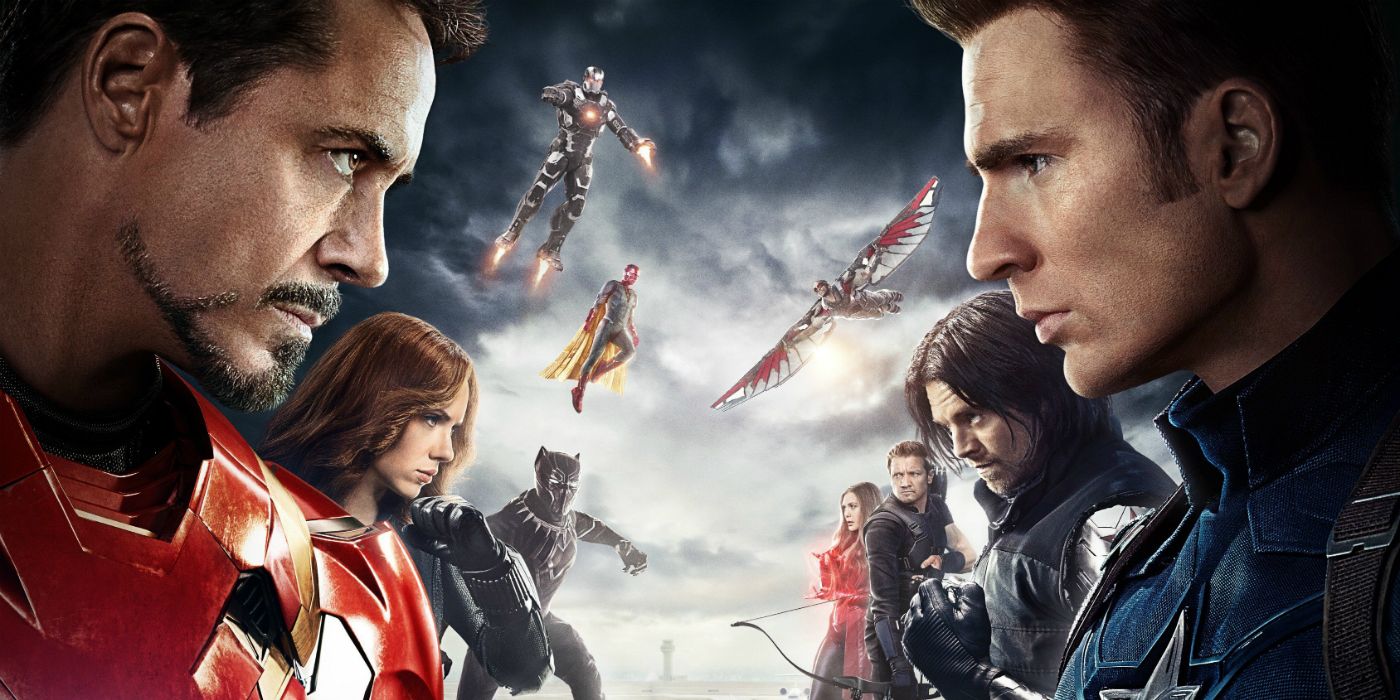The recent announcement that the producers of James Bond were considering branching out into a Bond cinematic universe left fans somewhat divided. After all, there's not really a good reason for there to be a Bond cinematic universe except for the fact that every studio has one now. From the mainstays of Marvel, DC, and Star Wars to newer additions such as The Conjuring cinematic universe and Universal's Dark Universe, it seems as though you can't throw a bucket of popcorn without hitting some kind of connected universe at the movies.
But is all of this a good thing, or does the glut of cinematic universes not only spell trouble for original work but for the box office as well? After all, The Mummy did little to help Universal's Dark Universe. Though the film made waves in international markets, it performed pretty dismally at the domestic box office and received dismal reviews. Universal's plans are further confused by the fact that Legendary Pictures has a monster 'verse of their own with Kong: Skull Island and Godzilla: King of Monsters. - not to mention the fact that "Dark Universe" was the intended title for an in-development DC movie.
And if all that seems to be a lot to swallow, that's not even taking into account the different layers of cinematic universes that exist within each studio. Lucasfilm is perhaps the only studio with a straightforward approach to a multi-platform universe — all of the Star Wars movies, TV shows, books, and comics are pointing towards one end goal. Star Wars Rebels does not exist in a separate universe from the Star Wars sequel trilogy. Marvel and DC, on the other hand, have multiple universes that do not interact in the slightest. Obviously, the comics would exist as a separate entity from the movies, as they have a long and storied past that would be hard to make sense of for audiences new to the characters.
But the TV shows also exist as separate entities, which means DC has two Flashes and two Supermans (Supermen?), and will probably have two Green Arrows, two Supergirls, and two Black Canaries before all is said and done (not to mention Gotham, which exists entirely on its own as a Batman story). Marvel is juggling even more than that when it comes to separate universes. The Marvel movies will never intersect with the Marvel Netflix universe, which in turn will probably never intersect with Agents of SHIELD or Inhumans (which also probably won't cross over). There's also the X-Men films, which have two timelines and two casts. Does anyone need an aspirin before we carry on?
There is nothing inherently wrong with a cinematic universe. When Marvel first began Phase One of the MCU, the concept was new and invigorating in how it differed from the usual franchise model. No one would say that Mission: Impossible was a cinematic universe, or the Apes trilogy that will conclude with War for the Planet of the Apes. A cinematic universe can best be described as a series of connected films that often will cross over with each other, and prior to Marvel, no one else had really attempted such a thing. Phase One still stands as a triumph of interconnected films, culminating with the success that was the original Avengers. The start of Phase Two was equally successful, showing the way the characters were growing and developing post-Phase One and the "finale" that was The Avengers.
The DC cinematic universe, regardless of what you may feel about the quality of the films, also is set up to work well, despite there being multiple universes they're currently playing with. Man of Steel served as the introduction, Batman V Superman continued the story and introduced new characters, and Wonder Woman fleshed out the universe. Suicide Squad was the only film that didn't work necessarily in the overarching story, but it still served a purpose; to broaden the horizons of the series.
Next Page: [valnet-url-page page=2 paginated=0 text='Quality%2C%20Not%20Quantity']
It is only when we look to the future that the superhero universes seem to be in trouble. 2018 will be a box office-pocalypse, with Marvel and DC releasing multiple high profile films within weeks of each other, with barely any time to breathe before the next tentpole hits. Many smaller franchises will also be releasing major films sandwiched between the MCU and DCEU releases. And beyond that, both major studios as well as their smaller companions show no signs of stopping. Marvel's 22-film plan comes to an end with Avengers 4 but then starts anew with Spider-Man 2, and DC is only just getting started on their universe.
The concept of cinematic universes is not an entirely bad idea. The problem is that it's oversaturated the market, and not everything needs to be a cinematic universe to work. For example, The Conjuring and The Conjuring 2 were strong horror films that stood well on their own. Even after the poorly-received spinoff Annabelle arrived on the seen, those movies could still exist on their own without needing to be part of some sort of universe. Similarly, the Dark Universe is a fun concept, but also so far has proven to be uninspiring for audiences with The Mummy's low box office returns. There was no audience demand for these universes to exist, and yet they do.
It seems as though studios are missing what made Marvel's films so successful in the first place - including Marvel, to a degree. The original Marvel films worked well because they were good and teased a larger universe in a smart, steady way that didn't distract from the overall story. Newer films are too heavy on characters (Hulk in a Thor movie, Falcon in an Ant-Man movie, Iron Man in a Spider-Man movie, and just about everyone in the most recent Captain America movie) or on setting up future films, which can make them feel more like trailers than standalone stories.
One special nod should be given to Lucasfilm, who seem to be more focused on building their universe up quality-wise rather than generating multiple films a year. The emphasis there is on storytelling, rather than trying to put out as much as they can and seeing what sticks from that. One strong film a year and one strong television show, aided by multiple books and comics all working towards the same story goal, is proving to be a successful strategy.
There's also the question of originality. If all studios want to make is shared universes, they begin to turn away from unique ideas and instead try to make cookie cutter films that tie into some "greater plan" for a universe. Consider Marvel's public fallings-out with Joss Whedon and Edgar Wright, both of whom felt they did not have the creative control necessary to make their films. The universes are actually stifling creativity to a degree that is toxic for newer and fresher ideas, especially since most cinematic universes rely on adapting established comics or films into newer reboots.
This is not to say that Hollywood is doomed, or that popcorn movies can't also be great movies, but cinematic universes are not the silver bullet for success that studios want them to be. In fact, the time might have come to start making more standalone films, rather than trying to build franchises or universes. At the very least, studios need to scale back on their attempts to build multiple universes and instead promote creative films that work, be they part of a franchise or not. As the success of unique standalone films such as Hidden Figures, Baby Driver and Get Out show, audiences are hungry for quality filmmaking. If studios want to succeed, that's the model they should pursue.


